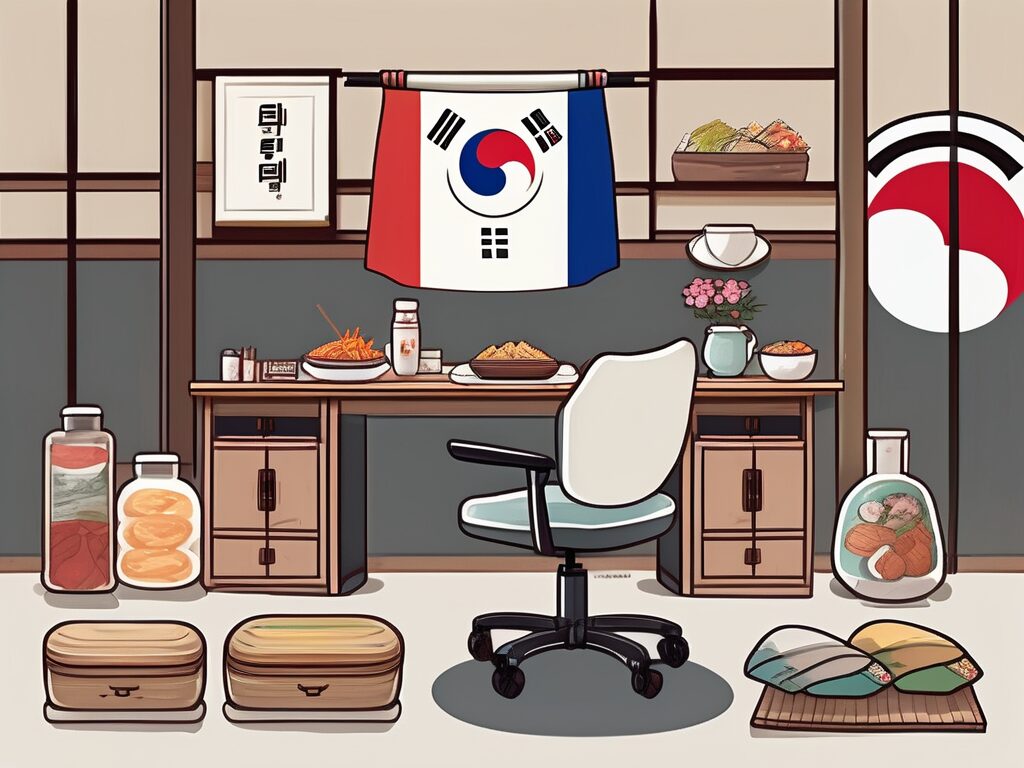South Korea, a country known for its rich history, vibrant culture, and technological advancements, has become a popular destination for international teachers. The cost of living in this East Asian nation can vary greatly depending on a number of factors, including location, lifestyle, and personal spending habits. In this comprehensive guide, we will delve into the various costs associated with living in South Korea as an international teacher.
Accommodation
One of the first things you’ll need to consider when moving to South Korea is accommodation. The cost can vary greatly depending on the type of housing, its location, and the size of the property.
In major cities like Seoul and Busan, a one-bedroom apartment in the city centre can cost between 800,000 to 1.5 million KRW (approximately £530 to £1,000) per month. However, the cost can be significantly lower in suburban areas or smaller cities, where you can find similar apartments for around 500,000 to 800,000 KRW (approximately £330 to £530) per month.
Many international teachers in South Korea are provided with free or subsidised housing by their employers, which can greatly reduce living costs. This is a significant advantage compared to other popular teaching destinations like Japan or China, where housing is typically not included in employment packages.
Food and Dining
South Korea offers a wide range of dining options to suit all budgets. From local street food to high-end restaurants, the cost of food can vary greatly.
For those who enjoy cooking at home, groceries are relatively affordable. A week’s worth of groceries for one person typically costs around 50,000 to 100,000 KRW (approximately £33 to £66). This includes staples like rice, vegetables, meat, and seafood.
Dining out in South Korea can be as cheap or as expensive as you want it to be. A meal at an inexpensive restaurant can cost around 6,000 to 10,000 KRW (approximately £4 to £7), while a three-course meal at a mid-range restaurant can cost between 20,000 to 40,000 KRW (approximately £13 to £27).
Compared to Western countries, dining out in South Korea is relatively affordable. For instance, a meal at a fast-food restaurant in South Korea is around 50% cheaper than in the UK.
Transportation
South Korea boasts an efficient and affordable public transportation system. Whether you’re travelling within a city or across the country, there are various transportation options available.
In cities like Seoul and Busan, a one-way ticket on the subway or bus costs around 1,250 to 2,000 KRW (approximately £0.83 to £1.33). A monthly pass, which offers unlimited travel within the city, costs around 55,000 to 60,000 KRW (approximately £36 to £40).
For intercity travel, trains and express buses are the most popular options. A one-way ticket on the KTX (Korea’s high-speed train) from Seoul to Busan costs around 59,800 KRW (approximately £40), while a ticket on an express bus costs around 20,000 to 30,000 KRW (approximately £13 to £20).
Compared to other developed countries, public transportation in South Korea is quite affordable. For instance, a monthly pass in London can cost up to £150, nearly four times the cost in Seoul.
Leisure and Entertainment
When it comes to leisure and entertainment, South Korea has something for everyone. From historical sites and museums to concerts and sporting events, the cost can vary greatly.
Entrance fees for most museums and historical sites range from free to 10,000 KRW (approximately £7). Tickets for concerts and sporting events can vary greatly depending on the event and seating, but generally range from 20,000 to 100,000 KRW (approximately £13 to £66).
Movie tickets in South Korea are relatively affordable, costing around 8,000 to 12,000 KRW (approximately £5 to £8). This is significantly cheaper than in the UK, where movie tickets can cost up to £15.
South Korea also offers a wide range of outdoor activities, many of which are free or low-cost. For instance, hiking is a popular pastime in South Korea, with numerous trails available throughout the country.
Healthcare
Healthcare in South Korea is of a high standard and is relatively affordable. Most international teachers in South Korea are eligible for the National Health Insurance (NHI), which covers a significant portion of medical costs.
Under the NHI, a visit to a general practitioner typically costs around 5,000 to 15,000 KRW (approximately £3 to £10), while a visit to a specialist can cost around 10,000 to 30,000 KRW (approximately £7 to £20). Prescription medication is also relatively affordable, with most prescriptions costing less than 10,000 KRW (approximately £7).
Compared to the US, where healthcare costs can be prohibitively expensive, healthcare in South Korea is quite affordable. Even without insurance, a visit to a general practitioner in South Korea is around 80% cheaper than in the US.
Conclusion
The cost of living in South Korea for international teachers can vary greatly depending on a number of factors. However, with affordable housing, food, transportation, and healthcare, South Korea offers a high standard of living at a relatively low cost.
While the cost of living in South Korea may be higher than in some countries, the benefits such as free or subsidised housing, high salaries, and a rich cultural experience make it an attractive destination for international teachers.
Enhance Your Teaching Career in South Korea with IPGCE
Ready to elevate your teaching experience in South Korea? Join the UK’s #1 Teacher Training Course, IPGCE, and overcome the common barriers to international teaching success. Our program not only increases your chances of landing interviews by 50% but also boosts promotion rates by 45% and can lead to a 30% salary increase. Connect with a global network of educators, gain a deeper understanding of international curricula, and enjoy the flexibility of online study to balance your professional development with your teaching commitments. Don’t let inadequate credentials limit your potential. Join IPGCE today and take the next step in your international teaching career.

